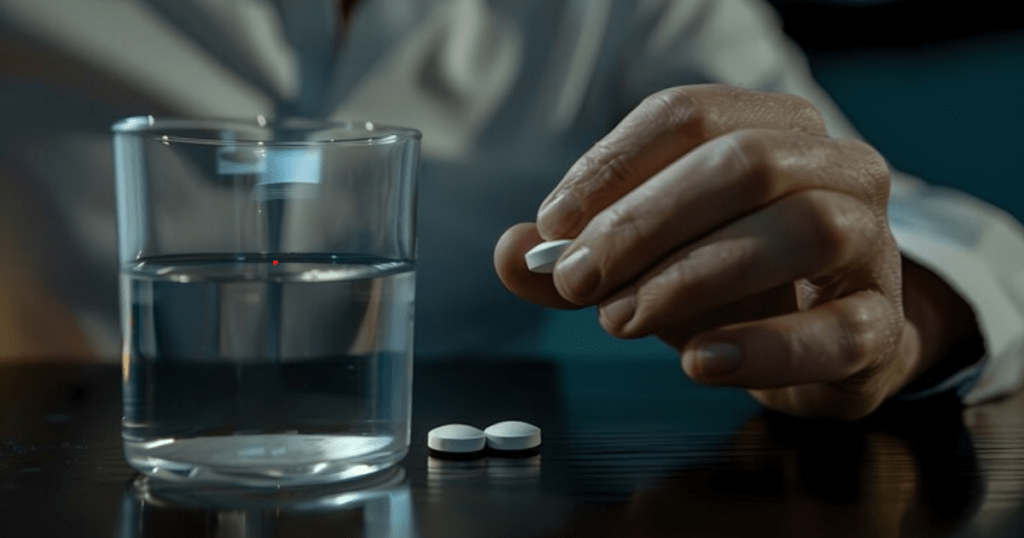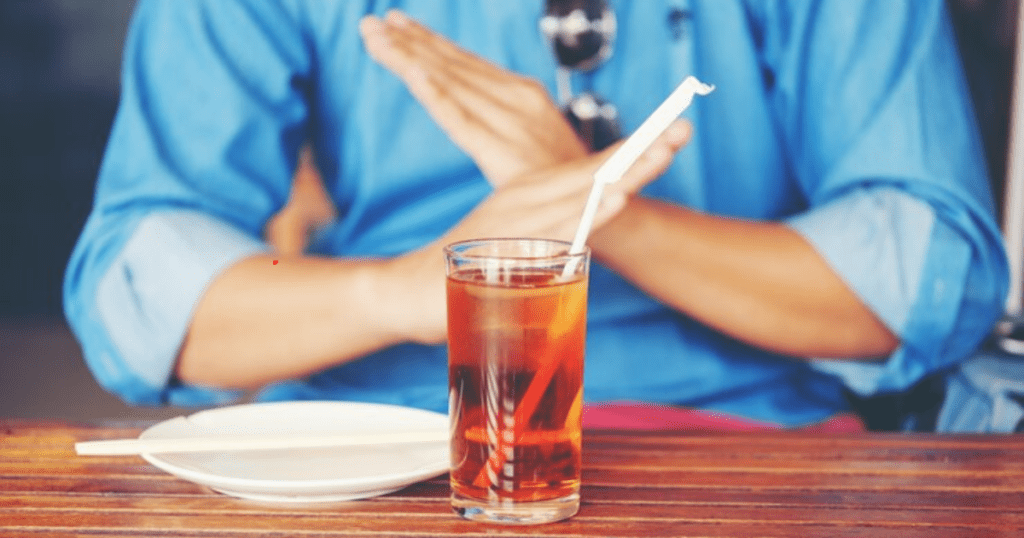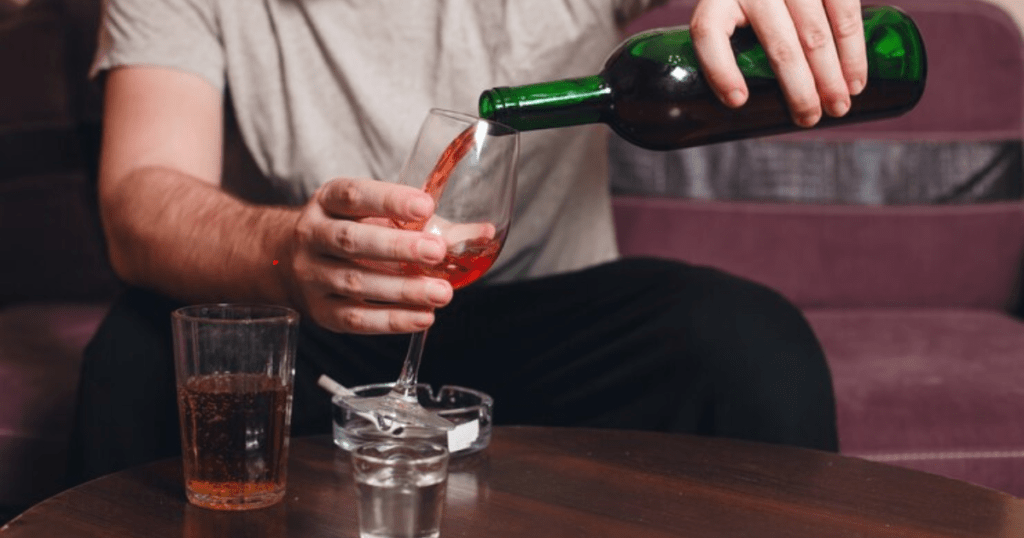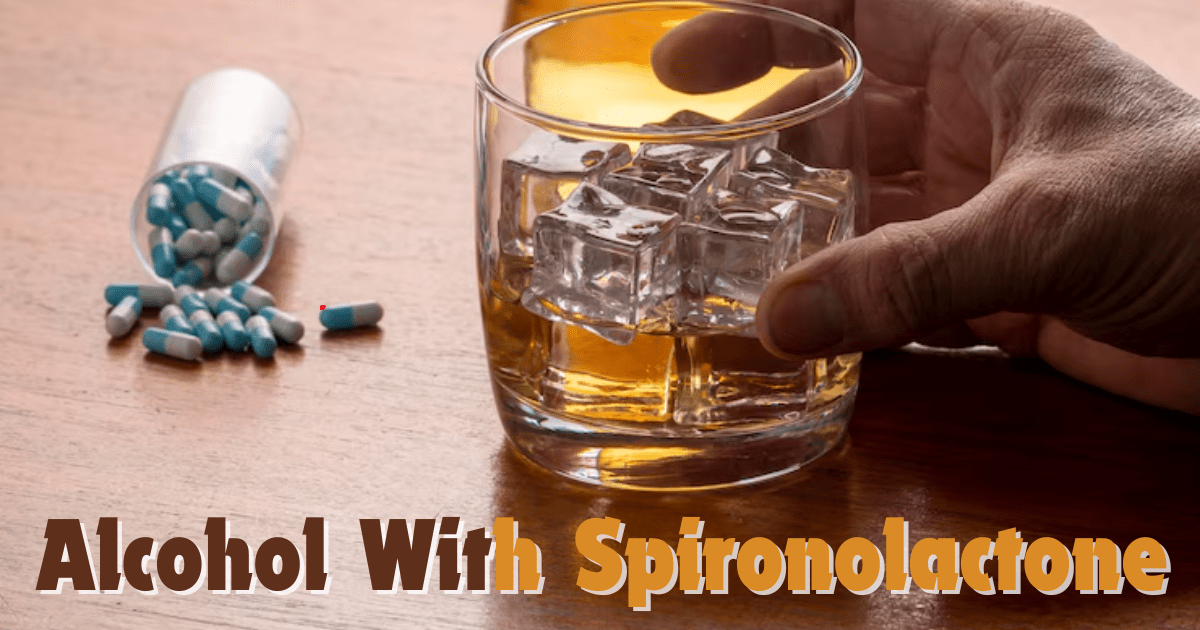Alcohol and spironolactone are often combined, but their combination can lead to increased side effects, dehydration, electrolyte imbalance, liver strain, and undermining the effectiveness of spironolactone in managing blood pressure, making it a potentially dangerous combination. So, Drinking alcohol while taking spironolactone is generally not good for you.
What is Spironolactone?
Spironolactone is a multipurpose drug that works primarily as a diuretic and antihypertensive. It helps your body eliminate extra salt and water while retaining potassium. However, it is also used to treat hormonal acne and polycystic ovarian syndrome (PCOS).
Common Uses of Spironolactone
Treating High Blood Pressure
Spironolactone is used primarily to treat high blood pressure. Reducing the quantity of fluid in your blood vessels lowers pressure, making it easier for your heart to pump blood.
Managing Heart Failure
Spironolactone is also effective for people who have heart failure. It alleviates the strain on the heart by avoiding fluid buildup, which is frequent in such conditions.
Addressing Hormonal Acne
For people suffering from hormonal acne, spironolactone might be a game changer. It works by lowering androgen levels, which are commonly responsible for acne breakouts.
Treating Polycystic Ovary Syndrome (PCOS)
Women with PCOS frequently use spironolactone to control symptoms such as irregular periods, excessive hair growth, and acne. Its anti-androgen properties make it very effective in this scenario.

How Does Spironolactone Works?
Spironolactone is typically used as a diuretic, which means it helps the body eliminate excess salt and water via urine. It belongs to a class of drugs called aldosterone receptor antagonists.
This is how spironolactone works.
Blocking Aldosterone: The adrenal glands produce aldosterone, a hormone that helps control the body’s salt and water balance. Spironolactone inhibits the activity of aldosterone by attaching to its receptors in a variety of organs, including the kidneys.
Promoting Sodium and Water Excretion: Spironolactone promotes sodium and water excretion by inhibiting aldosterone receptors, which inhibits the kidneys from reabsorbing sodium (salt) and water. This causes an increase in the excretion of salt and water in the urine, lowering the overall volume of fluid in the body.
Potassium-Sparing Effect: Unlike some other diuretics, spironolactone conserves potassium. It aids in the retention of potassium in the body while also encouraging salt and water excretion. This is especially helpful for people who are at risk of potassium deficiency owing to other drugs or diseases.
Antagonizing Androgen Receptors: Spironolactone functions as both a diuretic and an antagonist of androgen receptors. This implies it can inhibit the action of certain male hormones (androgens), such as testosterone. In clinical practice, spironolactone is occasionally prescribed off-label to treat diseases involving androgen excess, such as hirsutism (excessive hair growth) and acne in women.
How Alcohol Affects Spironolactone Efficacy?
Alcohol can affect the efficacy of this medication. Alcohol can increase fluid retention and decrease spironolactone’s diuretic action, making it less effective for treating high blood pressure and heart failure.
Can I Drink Alcohol While Taking Spironolactone?
Drinking alcohol while on spironolactone is typically not recommended. Here are a few reasons why combining alcohol with this medication may be problematic:
- Increased Side Effects: Both of them can produce dizziness, lightheadedness, or fainting. Combining the two can amplify the consequences, increasing your susceptibility to accidents and injury.
- Dehydration: Spironolactone is a diuretic, which means it helps your body eliminate extra water and salt via urine. Alcohol also has diuretic qualities, which can cause dehydration. If dehydration is not treated, it can lead to headaches, muscle cramps, and other serious health problems.
- Electrolyte Imbalance: Spironolactone alters the electrolyte balance in your body, notably potassium levels. Alcohol can also disrupt electrolyte balance, raising the risk of problems such as irregular heartbeats.
- Liver Strain: The liver processes both alcohol and spironolactone. Drinking alcohol can place additional strain on your liver, potentially causing liver damage, especially if you consume it frequently or in high quantities.
- Blood Pressure: Spironolactone is frequently given to control blood pressure. Alcohol can also lower blood pressure, thereby weakening the efficacy of spironolactone in hypertension management.

Risks and Effects of Drinking alcohol on Spironolactone
Combining alcohol and spironolactone may increase the likelihood of some side effects and reduce the medication’s effectiveness. Here are some key considerations:
- Dehydration: Both alcohol and spironolactone can have diuretic effects, which means they increase urine production and cause dehydration. Drinking alcohol while taking spironolactone may worsen the effect, raising the risk of dehydration and electrolyte abnormalities.
- Blood Pressure: Spironolactone is frequently recommended to help reduce blood pressure. However, excessive alcohol use might cause high blood pressure. Combining them may impair the medication’s capacity to successfully manage blood pressure.
- Potassium Levels: Spironolactone is a potassium-sparing diuretic, which means it helps the body retain potassium. Alcohol may interfere with the body’s capacity to control potassium levels. Excessive alcohol consumption while taking spironolactone may increase the risk of hyperkalemia (high potassium levels), which is potentially harmful.
- Liver Function: Both alcohol and spironolactone can impair liver function. Excessive alcohol consumption can worsen liver damage, particularly in people with pre-existing liver diseases. If alcohol is consumed while taking spironolactone, liver function must be monitored on a frequent basis.
- Dizziness and Drowsiness: Side effects of alcohol and spironolactone include dizziness and sleepiness. Combining the two may enhance the likelihood of these adverse consequences, affecting coordination and judgment.
- Medication Effectiveness: Alcohol can interfere with medication absorption and metabolism, thereby decreasing the effectiveness of spironolactone. This could result in insufficient regulation of illnesses like excessive blood pressure or heart failure.
- Increased Risk of Adverse Effects: Combining alcohol and drugs always raises the possibility of side effects and complications. It is critical to follow your healthcare provider’s alcohol consumption guidelines when taking spironolactone.
Related: How to Flush Alcohol Out of Your System
How Long After Taking Spironolactone Can You Drink Alcohol?
The particular timing for drinking alcohol after taking spironolactone may differ depending on individual characteristics such as dosage, overall health, and tolerance to both medicines and alcohol. However, it is typically advised to limit drinking while taking spironolactone, especially if you are unsure how your body will react to the combination.
If you choose to consume alcohol while taking spironolactone, you must exercise caution and moderation. Waiting a few hours after taking spironolactone before drinking may lessen the likelihood of potential interactions. However, it’s vital to highlight that there is no generally applicable “safe” timeframe.

Conclusion
Basically, mixing spironolactone with alcohol is not a good idea. It can make the medicine not work as well, give you more bad side effects, and hurt your liver. Even though having a drink might seem fun, it’s important to think about what could happen and be smart about it. Talk to your doctor if you’re not sure what to do, and remember, don’t drink too much.
People Also Ask
1. Can I drink alcohol while taking spironolactone?
No, this is not a good idea. Drinking alcohol while taking spironolactone may cause you to feel dizzy or lightheaded. This is because both alcohol and spironolactone can reduce blood pressure. When combined, the effect can be more potent and make you feel uncomfortable. Avoiding alcohol is a safer way to keep your body feeling well.
2. What happens if I mix spironolactone and alcohol?
If you combine spironolactone with alcohol, you may feel more dizzy or exhausted than usual. This is because both substances can lower your blood pressure. Imagine riding a roller coaster that goes up and down quickly; it can make you feel shaky and even nauseous. As a result, it is best to avoid alcohol when using this medication.
3. Why should I avoid alcohol when on spironolactone?
You should avoid drinking because it can exacerbate the negative effects of spironolactone. Consider adding more weight to a backpack: it makes things feel heavier and more difficult to manage. Alcohol can make you feel extremely dizzy, exhausted, or weak, which is not enjoyable. Staying away from alcohol helps you stay safe and feel good.
4. Can I have a small amount of alcohol with spironolactone?
Even a tiny amount of alcohol can cause issues while taking spironolactone. It’s like playing with fire; even a small flame might result in a severe burn. To be safe and avoid feeling dizzy or ill while taking this medication, avoid drinking alcohol completely.
5. What should I do if I accidentally drink alcohol while taking spironolactone?
Don’t panic if you accidently drink alcohol while taking spironolactone. Simply pay attention to how you are feeling. If you begin to feel dizzy, exhausted, or ill, sit or lie down to rest. Stay hydrated by drinking plenty of water, and if you’re concerned, consult an adult or a doctor. It is critical to exercise caution the following time to avoid any unintended consequences.









Leave a Reply